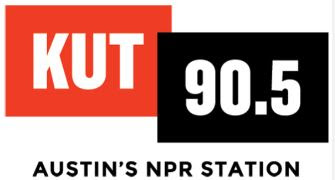Terry's Book Review
February, 2024 |
Here we are. On the brink of a presidential contest that few of us Americans want.
There could not be a better book to read right now in these trying times, trust me. You'll thoroughly enjoy
Our Ancient Faith:
Lincoln, Democracy, & the American Experiment
but more importantly you'll find comfort in these pages.
Writing in the shadow of these despairing political times, Allen Guelzo offers us much needed reassurance as we prepare to exercise our precious right to vote. He offers not only the solace of Abraham Lincoln's passionate belief in democracy but also delivers a brilliant rebuke to all the "Lincoln haters" out there.
Allen C. Guelzo is one of our nation's foremost experts on Lincoln. He is Senior Research Scholar at the Council of the Humanities at Princeton University. He is the author of several books about the Civil War and early 19th century American History.
He is the recipient of the Guggenheim-Lehrman Prize for Military History and has been awarded the Gilder Lehrman Lincoln Prize three times.I so enjoyed Steve Inskeep's February 6, 2024 on-air interview with Guelzo (pictured), who said:
"The great thing about democracies is they have such
resilience. Dictatorships, or authoritarian / totalitarian systems look so
strong. They look so powerful. They've got these people in uniforms and medals
and their strutting armies on parade, showing off their arsenals with missiles
on display. They look powerful. But totalitarians are really fragile. If they
can't succeed at the very first moment of what they attempt to do, they break
up and collapse, whereas democracies - democracies reel from mistakes they have
made, from challenges they haven't anticipated. They reel from them, and they
pick themselves back up, and then they go forward, and they solve these
problems. We don't
practice enough resilience. We don't practice enough patience. And if there's
anybody who can talk to us about the importance and the significance of
patience and resilience in democratic life, it's Abraham Lincoln."
"It is worth noting that this staunch defender of
democracy saw the office of President as only one citizen, a person who was
elected for a brief period of time, and argued he was not that important
compared to the system as a whole... He spoke of himself as a piece of
driftwood that had drifted into the middle of that great, sensational moment of
his time - the civil war. in 1860, Lincoln assured an audience that even
if his presidency were foolish or wicked, democracy meant he would only serve
for a while, and there was only so much damage he could do, so long as all citizens
insisted on the Constitution ruling the President's actions -- and never the other
way around."
"At Peoria, Ill., in October of 1854 he makes one of the
biggest steps onto the political stage. In a speech there he lays out a
complete political philosophy of hostility to slavery and its contradiction of
democracy, which is what he is describing when he uses that phrase, our ancient
faith. Our ancient faith (our democracy) is wedded to the Declaration of Independence. Our ancient
faith is wedded to the idea of the consent of the governed, which he called in
that same speech the sheet anchor of American republicanism. That means it's
utterly incompatible with slavery."
"Lincoln grew up in a very religious household, though he never joins any single church. But he knew what religion was. He knew what it meant to say that something was your faith, and particularly our ancient faith. He wants Americans to understand that the Declaration of Independence and its principles should be as dear to Americans as the beliefs of Christianity are to Christians, of Judaism to Jews, and so on down the line. The tenacity with which you hold a faith is the tenacity with which Americans should hold on to the ideas of the Declaration of Independence, the ideas of a republic, the ideas of 'only by the consent of the governed majority.' That is an ancient faith, and it's ours."
Guelzo captures Lincoln's firmly held belief that democracy was the greatest political achievement in human history.
He shows how Lincoln's deep commitment to the balance between majority and minority rule enabled him to stand firm against secession while also committing the Union to reconciliation rather than recrimination in the aftermath of the civil war.
In bringing his subject to life as a rigorous and visionary thinker, Guelzo assesses Lincoln's actions on civil liberties and his views on race, and explains why his vision for the role of government would have made him a pivotal president even if there had been no Civil War.
"Our Ancient Faith gives us a deeper understanding of this endlessly
fascinating man and shows how his ideas are still sharp and relevant more than
150 years later."
Terry’s “Good Living” Guide:
Avoid the 3 PsBsSs
Processed Foods, Phthalates, Plastics;
Beef, Butter, Breads;
you’ll be feeling better in no time!
Avoid the 3 F’s
misinformation, fear, anger and hate!








No comments:
Post a Comment